
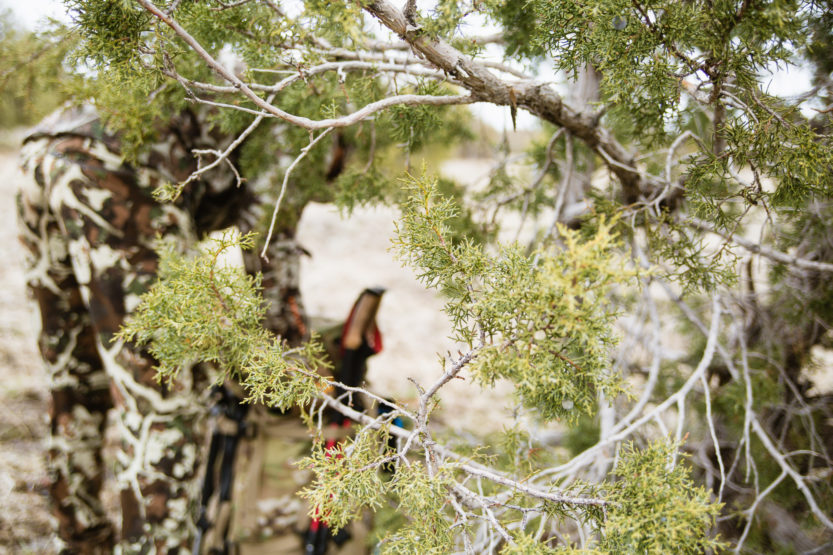
It seems that every backpack hunt or backpacking trip I go on, I am trying to figure out how to lighten the weight of my pack. There was a time when I would bring things just to bring them, and quite honestly, I probably still do it some. Over the years though, I’ve gotten more comfortable and in tune with my gear to really start realizing what I need and what I don’t need. I quiver when I hear guys carrying 70-80 pounds of gear into the backcountry. If you want to do that, that is totally fine, but I just don’t, especially when I am planning on hauling out loads of fresh meat. Now, I am by no means a backcountry minimalist and for sure enjoy some creature comforts. Here are some things though that I have learned and ways that I have been able to cut down the weight of my pack.
I think one of the easiest ways to cut weight in your pack is by eliminating certain pieces of gear that only serve one purpose and replacing them with multi-purpose items. For instance, my First Lite Uncompahgre Puffy not only serves as an insulation piece, it also is an excellent windbreaker as well as it can be used as a pillow. So, that is one piece of gear that serves 3 different purposes, instead of having 3 different pieces of gear for each of them.
On a personal note, I used to carry 2 different knives with me. Why? Well, I liked one replaceable blade knife for skinning and a more beefier knife for more arduous tasks that required more backbone. I eventually whittled that down to one knife that I liked for both that was both a replaceable blade knife and also had a lot of backbone behind it. These are just a few examples of things that I have done with multi-purpose items that have helped me. Everyone’s pack is different though, so you need to go through your’s to see if there is any unnecessary items in there taking up space and weighing you down.
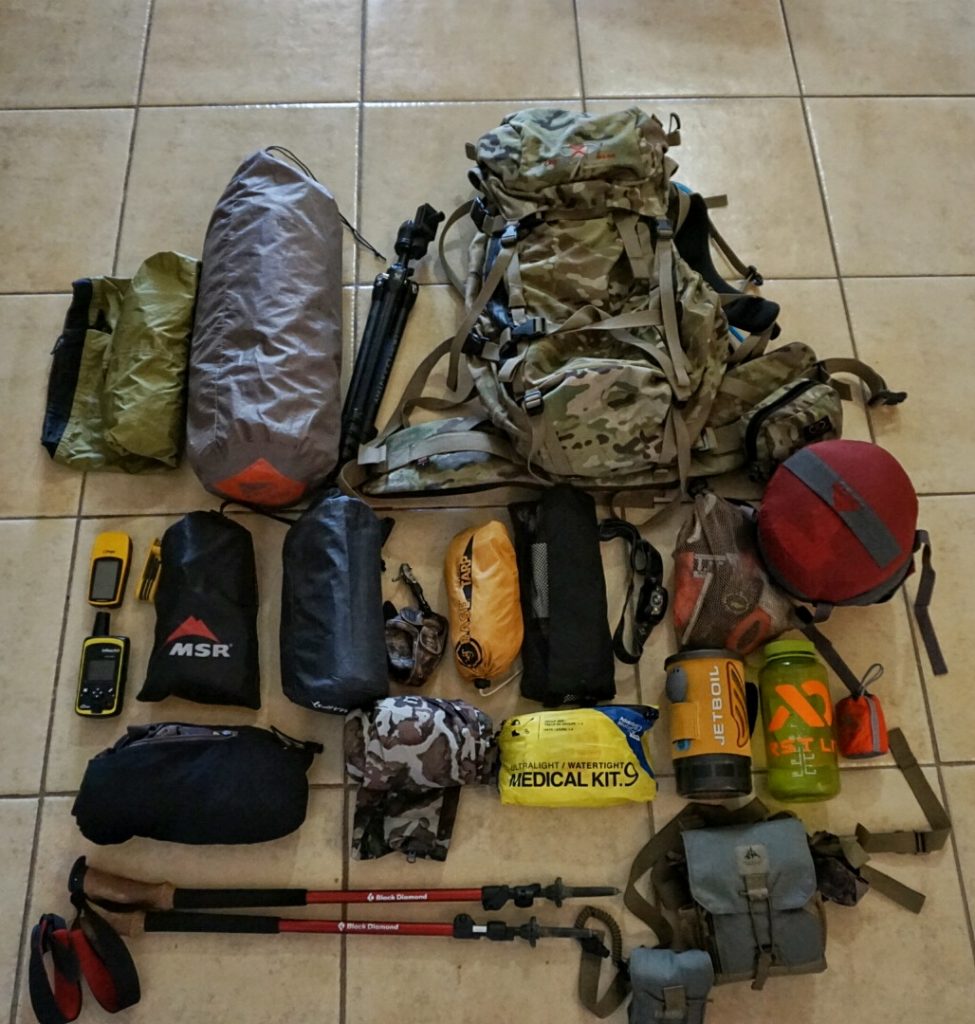
With experience comes confidence and with confidence comes comfort. That is a fact and I know it all too well. The more time you spend hauling camp on your back in the mountains, the more at ease you will be mentally. With that ease will come the ability to really pick out the items of gear that you don’t need. A great way to do this, is to make a gear list. Every time that you go out on a trip, come home and put a check mark next to every piece of gear that you didn’t use. If you get to the second or third trip and something still hasn’t been used, you probably don’t need it. Now, there are exceptions to this of course. A First-Aid Kit is something that I will always have with me, no matter if I use it or not. Another constant might be bear spray or a handgun. I hope I never have to use my handgun out there, but that or bear spray will probably always be with me. Maybe, I just don’t have the confidence in that area yet to not bring one of them, but I do nonetheless.
With experience comes confidence and with confidence comes comfort
Let’s talk clothing really quick. I was brought up to bring multiple sets of clothing on camping trips, but in the backcountry, that is completely unnecessary. You are going to be fine with one pair of pants. Bringing 6 pairs of socks for a 6 day hunt is just not needed. I usually bring 2 pairs of socks and switch them every other day. While I’m wearing one, the other is hanging up and air drying. One set of tops is going to also be fine. I wear a lightweight base layer, a middle weight base layer, and an insulation layer on most of my hunts and that’s it. There is no need to have a spare set back at camp. I might have some extra layers for warmth or rain gear stashed in my truck, but I don’t bring it, unless I think I will need it. Don’t worry about getting a little stinky. You can take a shower when you get home.
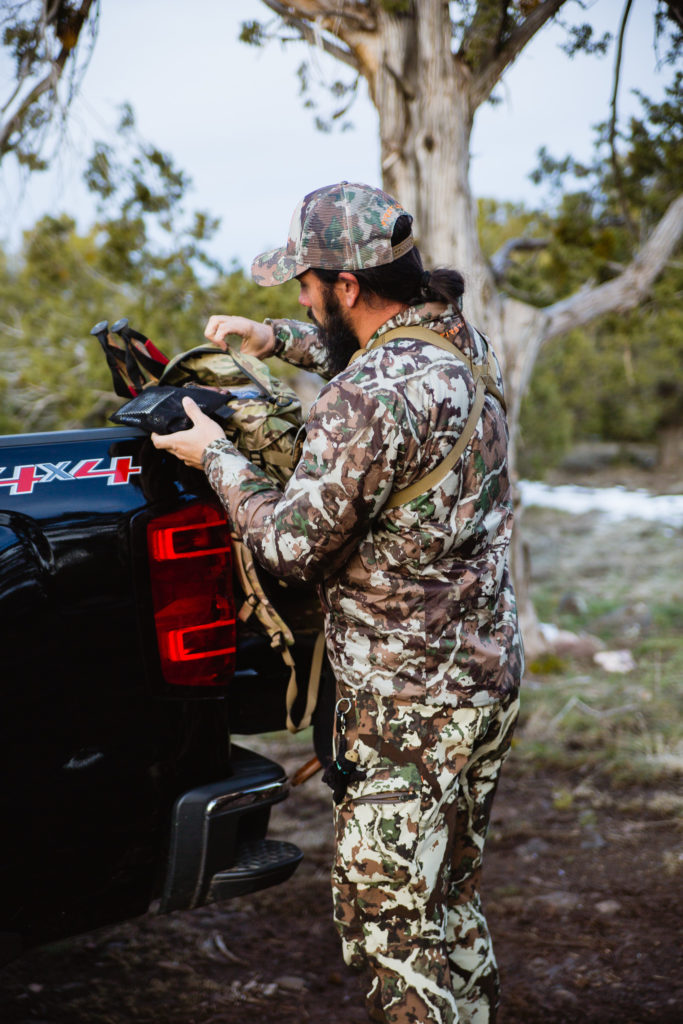
An obvious way that we can cut down the weight of our backpacks is by throwing money at the problem. I NEVER thought that I would spend over $300 on a tent or sleeping bag. The more I carried camp on my back though, the easier it was to justify doing so. Pretty much a general rule is for every pound that is shaved off a piece of gear, $100 is added on. Let’s say a 3 pound sleeping bag is $200. That usually means that a 2 pound bag is gonna be about $300. This stuff is an investment in your comfort back there and in my opinion, the more comfortable you are, the more of a clear head you will have, which will result in a more focused hunter. So, don’t be afraid to spend the extra money to get lighter equipment. Take the time to save up a bit extra if you are short on cash. Your back and legs will thank you.
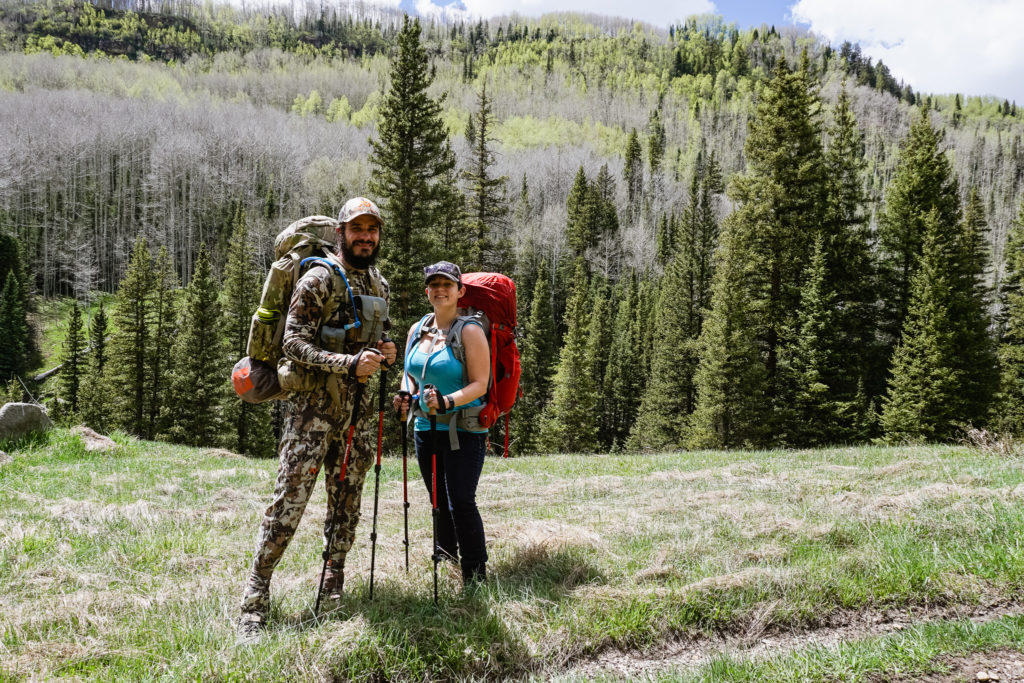
If you have the luxury of hunting with a partner, you can both save weight in your packs by splitting up the gear between the 2 of you. My brother and I often split gear between the 2 of us on hunts. For instance, we don’t need 2 stoves, because we are camping together. My brother not having to carry a stove opens up space for him to carry our water filter, another thing that we don’t need 2 of. My wife and I bring a 3 person tent with us, because we like the extra room. Now, all together that tent is over 6 pounds. Split between the two of us though, it’s only 3. We usually break it up by one of us carrying the stakes and poles and the other the actual tent and rain cover. If you are both gonna be together, there is just no sense in the added weight.
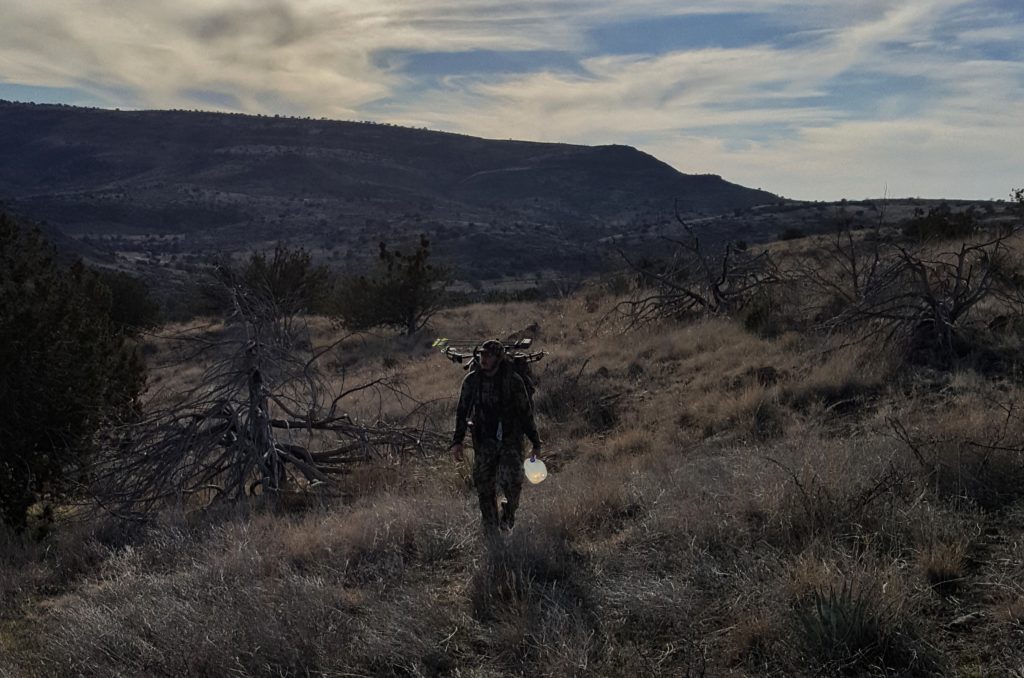
Something that you will soon realize after more and more backcountry trips is how most of your overall weight on your way in, comes from food and water. My food runs right in the realm of 2 pounds per day. If I’m on a 10 day hunt, that is 20 extra pounds of food that I have to carry into my camp. Then there is the water. If I’m going somewhere like Colorado that has ample amounts of water available, this isn’t an issue, because I can just filter water once in camp. Here in Arizona though, we aren’t so lucky a lot of times and have to actually carry water into camp, because of the absence of water in the area. We usually think about a gallon a day will suffice. Each gallon of water is 8.63 pounds. That is a lot of weight to think about carrying in on a multi-day trip, if you want to stay hydrated. For this reason, we started carrying water in ahead of time on our scouting trips and stashing it for our arrival. By doing this, we don’t have to carry in all of that weight at once, leaving us feeling less depleted had we done so. I’ve also heard of people doing this with their food and either burying it or hanging it high up in a tree. If you bury it, make sure you know exactly where you did so. You don’t want to arrive into your much anticipated elk camp and realize that you don’t remember where your food is.
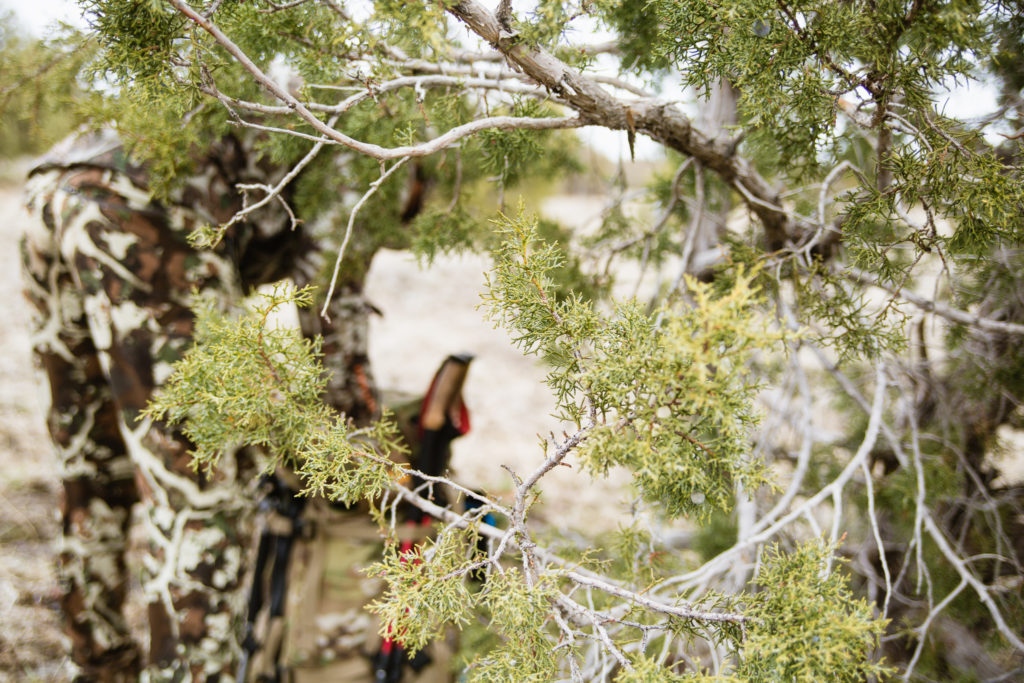
I’ve said it before and I’ll say it again. My first steps into the world of backcountry hunting had me absolutely amazed with how these guys and gals would fit everything they needed for a week of hunting into one backpack. That was the thing that intrigued me the most about the whole process of it all. Coming from a family that truck camped on the regular, I couldn’t see how it was possible, all the while knowing that it was. During our family camping trips, we would “bring the kitchen sink,” if you know what I mean. Suitcases of clothing, bins of food/utensils, along with our 9 person tents, that when packed up were bigger than my whole backpack I use today. The tent alone was usually over 10 pounds. Add all of that weight up together and I get sore just thinking about it. Be honest with yourself and your gear. If something has no purpose, then DITCH IT! I feel like a lot of things that I used to carry were in my pack, because they had always been, but weren’t really serving me a purpose in the field. They were just taking up space and wearing me down. Breaking the monotonous pattern and accepting change into your gear list is the only way you will get that lightweight backpack you’ve been dreaming about. Hopefully, that is followed up with that heavy backpack you’ve also been dreaming about.
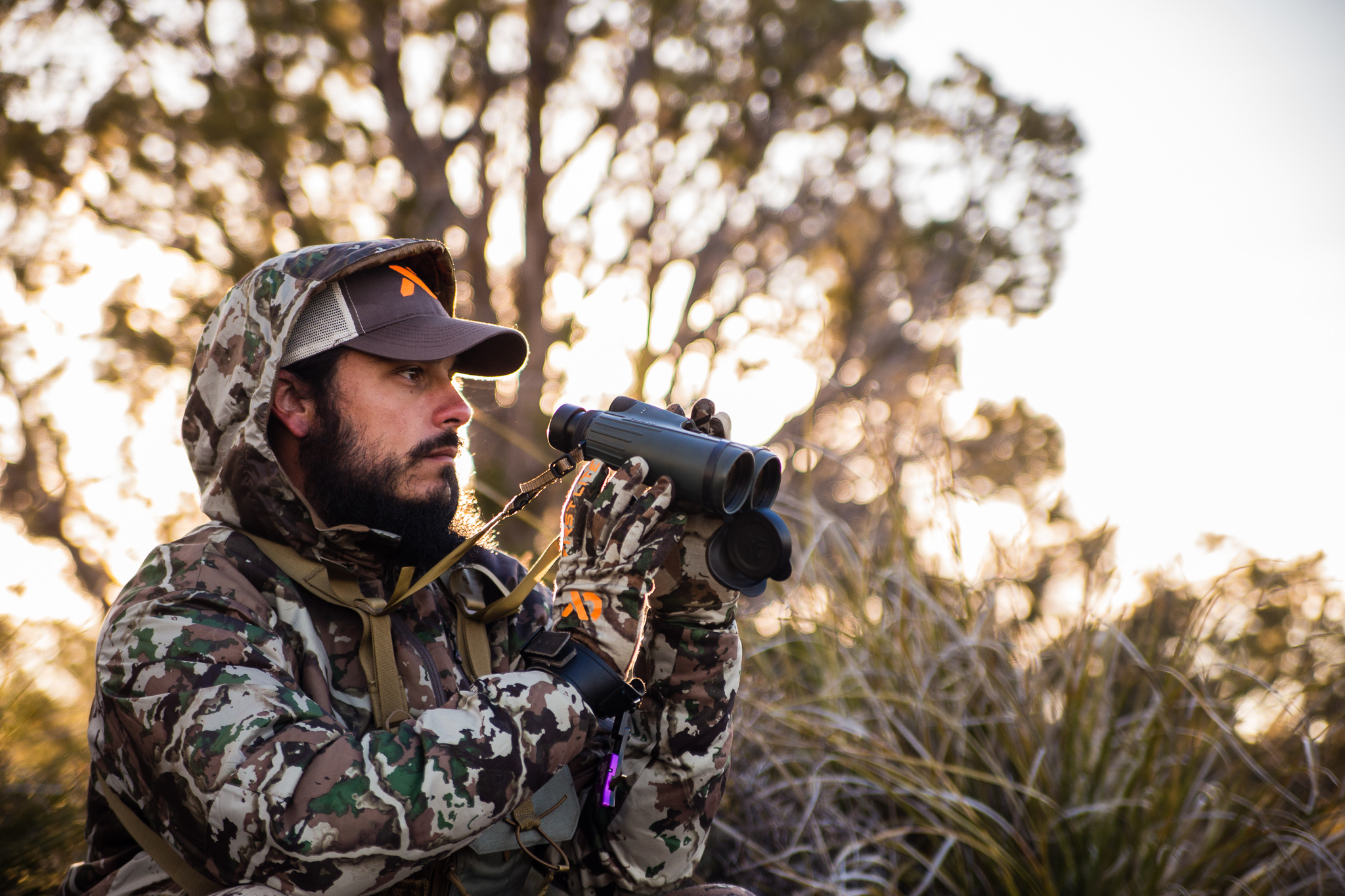

Copyright 2019 Dialed In Hunter
Design by NXNW.